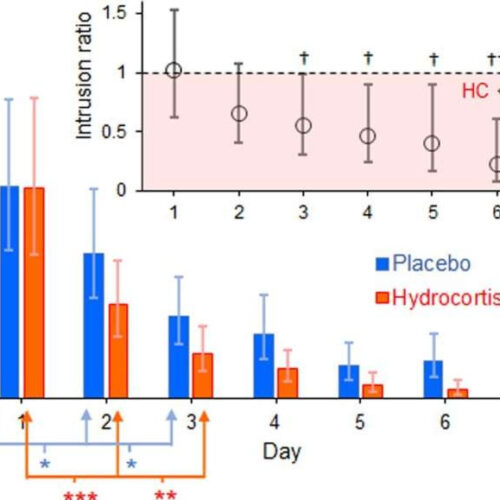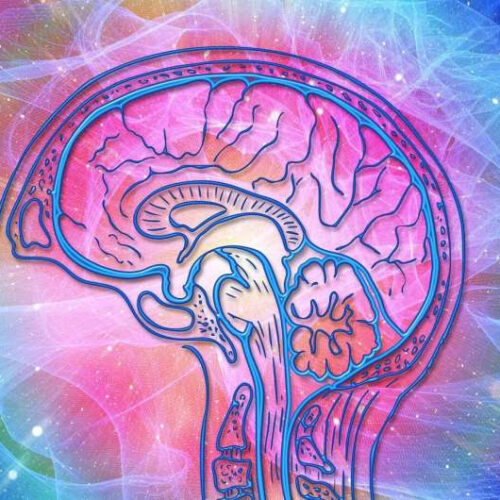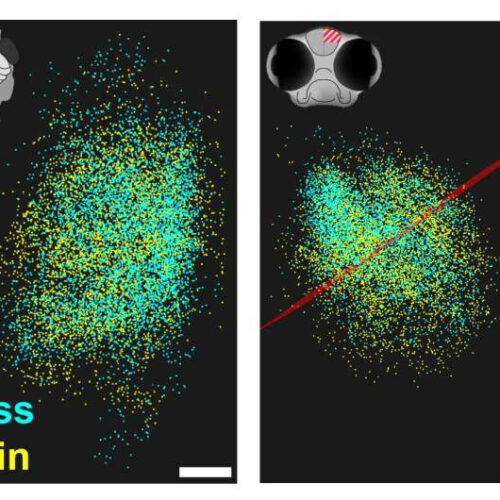by David Bruzzese, University of Arizona Credit: CC0 Public Domain People with post-traumatic stress disorder (PTSD) experienced better sleep, a reduction in the severity of PTSD symptoms and more effective treatments after exposure to blue light therapy, according to a new study conducted by researchers in the University of Arizona College of Medicine—Tucson’s Department of...
Tag: <span>PTSD</span>
Anti-inflammatory drug could help people with PTSD forget traumatic events
by University College London Accelerated reduction in intrusive memories following hydrocortisone. Main panel: predicted mean (95% CIs) number of intrusions on days 1–7 in the placebo (blue bars) and hydrocortisone (red bars) groups. Significant sequential reductions between days for each drug (*p < 0.05; **p < 0.01, ***p < 0.0001) are indicated. Inset: ratio of hydrocortisone intrusion counts relative to placebo,...
Most promising PTSD treatment may use ‘ecstasy’ or ‘magic mushrooms’ alongside psychotherapy
by European College of Neuropsychopharmacology Credit: Pixabay/CC0 Public Domain Post-COVID trauma and the war in Ukraine means that millions of people are suffering or are at an increased risk of developing an “epidemic” of post-traumatic stress (PTSD). Now a new review suggests that combining established psychotherapy methods with newer pharmaceuticals may offer the best therapeutic approach...
Israeli researchers find effective treatment for PTSD
By ARIELLA MARSDEN – Yesterday 9:00 PM For the first time, scientists have been able to reduce post-traumatic stress disorder (PTSD) symptoms through hyperbaric oxygen therapy (HBOT). It is a form of treatment in which the patient inhales 100% oxygen in chambers of pressures exceeding one atmosphere absolute, a term often used in SCUBA diving,...
TO KEEP PROBATIONERS OUT OF PRISON, SCREEN FOR PTSD
“For the probationers that experienced serious mental illnesses, over two-thirds of them had experienced a significant number of traumatic events,” says Ashley Givens, an assistant professor in the University of Missouri School of Social Work, who interviewed 207 probationers with current mental illnesses about their trauma and analyzed how it was affecting them. In their study,...
New research reveals COVID-19 traumatic stress may predict PTSD, particularly for people with a history of trauma
GEORGIA STATE UNIVERSITY ATLANTA—The pandemic has taken a substantial toll on mental health — and for a subset of Americans, COVID has emerged as a source of traumatic stress that may predict post-traumatic stress disorder, or PTSD, according to a new study led by Georgia State University. The research shows that the association between COVID traumatic stress...
Team Shows How Memories Are Stored in The Brain, With Potential Impact on Conditions Like PTSD
Fish that glow; a tailor-made microscope; a new way to catalog science. After six years, researchers produce the first snapshots of memory in a living animal. What physical changes occur in the brain when a memory is made? A team of researchers at the University of Southern California has, for the first time, answered this...
Study shows how memories are stored in the brain, with potential impact on conditions like PTSD
by University of Southern California Specialized software developed by the research team creates a map of the specific location and size of synapses from the three-dimensional microscope image. Comparing synapse maps from before and after learning, we can identify synapses that were either created or eliminated in the process. The red line in the right-hand...
75% of sexual assault survivors have PTSD one month later
UNIVERSITY OF WASHINGTON SCHOOL OF MEDICINE/UW MEDICINE Researchers want sexual assault survivors to know that it’s normal to feel awful right after the assault, but that many will feel better within three months. In a meta-analysis published in Trauma, Violence & Abuse, researchers found that 81% of sexual assault survivors had significant symptoms of post-traumatic...
Researchers identify potential subtype of PTSD
BOSTON UNIVERSITY SCHOOL OF MEDICINE (Boston)–A major obstacle in understanding and treating posttraumatic stress disorder (PTSD) is its clinical and neurobiological heterogeneity. In order to better treat the condition and address this barrier, the field has become increasingly interested in identifying subtypes of PTSD based on dysfunction in neural networks alongside cognitive impairments that may...





